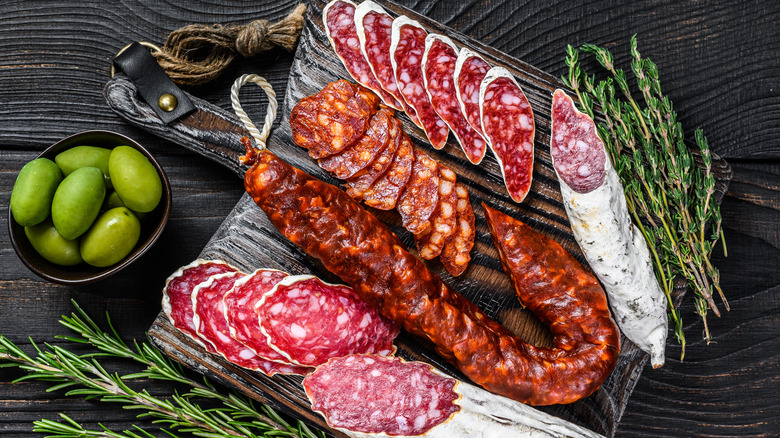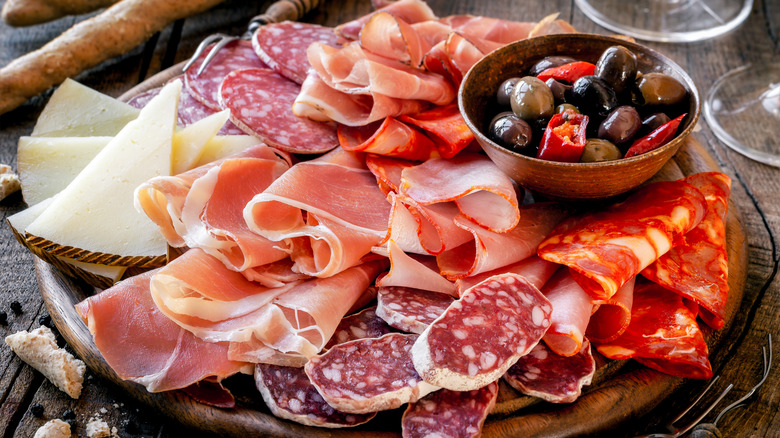The Link Between Charcuterie And Cancer Was Just Strengthened
Cured meat fans and charcuterie board enthusiasts should seriously consider cutting back on their salami, prosciutto, and mortadella consumption according to French health officials.
Earlier this week, the French Agency for Food, Environmental and Occupational Health & Safety (ANSES) — which works to determine potential health risks in food products and establish government policies to address those risks — took a firm anti-processed meat stance, declaring that consuming cured and preserved meats may increase an individuals' cancer risk (via The Guardian).
In its decision, the French health authorities called back to a 2015 report by the World Health Organization that found that the consumption of processed meats — which the organization defines as "meat that has been transformed through salting, curing, fermentation, smoking, or other processes to enhance flavor or improve preservation" — to be carcinogenic to humans (via Harvard).
The health risks associated with charcuterie meats is primarily tied to nitrates, which are compounds used in a variety of foods (particularly cured meats) to enhance the color and flavor while also to prolong the product's shelf life (via Healthline). Past studies have found that when exposed to naturally occurring bacteria and enzymes in the human body, nitrates can be converted to harmful nitrosamines. Scientific findings have tied the excessive consumption of nitrates and nitrites to cancers like breast, pancreas, kidney, and ovarian cancer (via Reuters).
Processed meats are considered a major cancer risk by global health leaders
In response to the troubling link between nitrates and cancer, in 2015 the United Nations International Agency for Research on Cancer determined that processed meats should be officially classified as a group 1 carcinogen (via Cancer.org). In addition to the cured meats found on charcuterie boards, the processed meats category includes ham, sausage, hot dogs, beef jerky, corned beef, salami, and other meat products made with nitrites.
Earlier this year, members of the French Parliament proposed a potential nitrate and nitrite ban, which would change the venerable deep-rooted French cured meat culture forever (via The Times). Amendments to the ban included risk labels that would be included on meat products (akin to the cancer labels found on cigarettes).
Following ANSES' recent proclamation about the dangers, the French government announced that it would be taking steps towards reducing the use of nitrites, clarifying that it wasn't pursuing a full ban on the compounds (via Reuters). The health organization determined that the best way to reduce cancer risk would be for individuals to cut back their processed meat consumption to around 5 ounces per week (down from the approximately 10 ounces consumed weekly by the average French adult, per Reuters).
French health experts hope that by introducing legislation that reduces the amount of nitrates used in food, it will be able to slowly achieve this goal without upending France's vital charcuterie industry or angering enthusiasts around the world.

